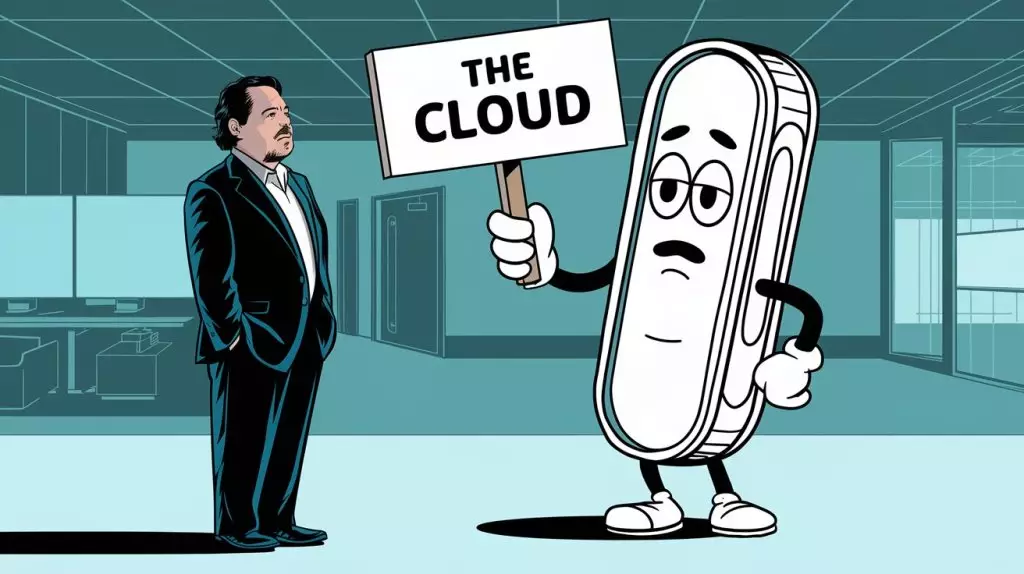In the fast-evolving world of technology, portrayals, and competitive rivalries can often morph into fierce debates, particularly when it comes to innovation in artificial intelligence (AI). Recently, Salesforce’s co-founder and CEO Marc Benioff ignited a discussion when he publicly critiqued Microsoft’s AI engagement, specifically targeting its Copilot assistant. Benioff’s assertion that Copilot is “disappointing” and “doesn’t work” resonates deeply with both tech enthusiasts and industry analysts alike. His comparison of Copilot to “Clippy 2.0” — a tongue-in-cheek nod to Microsoft’s infamous Office assistant from the 90s — encapsulates a sentiment that draws from nostalgia but should also evoke a critical examination of current AI developments.
To fully understand Benioff’s critique, one must explore what Copilot is and the promises it purportedly fulfills. Launched in March 2023, this AI-powered assistant integrates directly with Microsoft’s Office 365, offering functionalities that leverage OpenAI’s cutting-edge GPT models. With features such as enhanced user interaction through vision capabilities and human-like dialogue input and output, Microsoft has made considerable strides in positioning Copilot as a resource for productivity. However, key questions arise: Is this innovation genuinely meeting users’ expectations, or is it merely a reevaluation of past flaws encapsulated in a modern interface?
Microsoft previously faced backlash regarding Clippy, which was perceived as intrusive and often more of a nuisance than an actual aid. Today, while many find Copilot’s capabilities impressive, Benioff’s remarks imply that the assistant still falls short of making a significant impact in users’ workflows. This raises an essential question—has the tech industry learned from its past failures, or are we witnessing a cycle of repeated missteps?
It’s essential to consider the context of Benioff’s critique. At first glance, his statements might appear to stem from a place of healthy competition—Salesforce directly competes with Microsoft in several domains. However, there seems to be an underlying narrative of accountability regarding AI’s potential. Benioff recently emphasized that much of what is celebrated as progress in AI has been overstated, claiming that current advancements are not yet addressing significant global issues like health care or climate change.
This creates an intriguing dichotomy; while he recognizes AI’s potential for business applications, he doesn’t hesitate to label specific implementations, like Microsoft’s Copilot, as lacking. His attempt to draw a line between promise and delivery illuminates a broader discussion about the hurdles the industry faces in harnessing AI effectively. Is he advocating for a more cautious optimism rather than the uncritical embrace that many organizations seem to adopt?
Benioff’s comments have not gone without notice; industry observers have noted that his critique may reflect a wavering faith in the previously unassailable pro-AI narrative that has surged in recent years. Analysts specializing in public relations and technology have begun to highlight a shifting sentiment regarding generative AI, suggesting that Benioff’s reservations signal a potential tectonic shift in how such technologies are perceived. If a prominent figure like Benioff, who has historically championed AI within Salesforce, is now voicing skepticism, it raises alarms regarding the scalability and applicability of AI solutions across industries.
As tech giants like Salesforce and Microsoft continue to invest heavily in AI, shareholders and customers alike will be watching closely. The challenge lies in how these businesses will navigate the pressures of competition while simultaneously addressing the critical question of real-world utility. Will Benioff’s critical stance resonate with users or perhaps lead Microsoft to reevaluate its strategies? Only time will tell if these developments will foster a more responsible approach to AI implementation or if it will merely amplify the ongoing technological arms race between industry leaders.
While Benioff’s critique might be rooted in competitive animosity, it opens up essential discussions about accountability and realistic applications of AI technology. The future of AI is not merely about advancement; it is about creating meaningful solutions that enhance productivity without falling prey to past failures like Clippy. As the landscape changes, industry leaders must heed these lessons to foster innovation that truly delivers value.


Leave a Reply